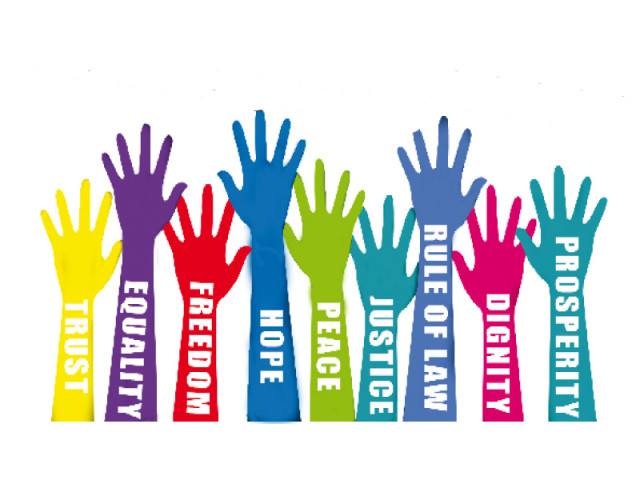World Human Rights Day: ‘Forced marriages belie Pakistan’s commitment’
Activists claim the country has failed to protect its people despite ratifying various conventions.

Pakistan may have ratified several international human rights treaties and conventions, but the state of affairs in the country for women, children and people detained by authorities remains deplorable to say the least.
This was the gist of what most speakers said on Thursday during a World Human Rights Day seminar in Haripur organised by Ayub Law College in collaboration with the Human Development Organisation. Students of the college, senior lawyers, journalists and human rights campaigners attended the seminar.
Speakers said the Universal Declaration of Human Rights clearly defined the liberties and rights of people—irrespective of cast, creed, color and gender. They stressed the declaration called for the protection of human dignity.

Likewise, the Constitution of Pakistan and some substantive laws protect citizens from any violation, the speakers said. However, they underlined that such binding laws were not being respected by Pakistani society, adding this was clearly evident from early or forced marriages, sexual abuse of children and torture during detention.
Adeel Ahmed from the Human Development Organisation said Pakistan had ratified the UN Convention Against Torture (UNCAT) on June 6, 2010, but law-enforcement agencies were rampantly using cruel, inhumane and degrading techniques to extract information from inmates.
“[Such acts] are clearly prohibited under Article 14 (2) of the Constitution of Pakistan, Article 5 of the Universal Declaration of Human Rights, and Article 7 of the International Covenant on Civil and Political Rights,” he said.
Sharing statistics from Hazara division, he revealed that over 80 cases of custodial mistreatment were reported in the media over the last 11 months.
In addition, over 75% of citizens brought to police stations and other detention centres were exposed to torture ranging from mild to severe. This was clearly in violation of national and international laws of human rights, Ahmed stated.
He also shared some data of violence against women and sexual abuse of children reported in Hazara by different newspapers over the last one year.
Muhammad Sadiq, another human rights activist, said detainees had been tortured for decades, but such methods failed to control crime. He also shared some of the common methods used against detainees during investigation.
Senior lawyers Malik Abdul Jalil, Aziz Ahmed Khan and Arshad Khan stressed on the need to implement international and national legal measures that guarantee respect for the rights of women, children, detainees and minorities.

Meanwhile, the Khyber-Pakhtunkhwa Directorate of Human Rights, in collaboration with the University of Peshawar Law College, organised an event to mark the same occasion in the provincial capital on Wednesday.
University of Peshawar Dean of Social Sciences Adnan Sarwar was the chief guest on the occasion. Also present were Human Rights Director Mukhtiyar Ahmad, Law Collage Principal Professor Fayazur Rehman and others.
Rehman told participants that December 10 is celebrated as International Human Rights Day throughout the world.
UoP Dean of Social Sciences Adnan Sawar said people must start ensuring human rights are respected at their own homes. He said freedom of speech and providing bare necessities like food, employment and the basic rights of people are a must.
Published in The Express Tribune, December 12th, 2014.













COMMENTS
Comments are moderated and generally will be posted if they are on-topic and not abusive.
For more information, please see our Comments FAQ